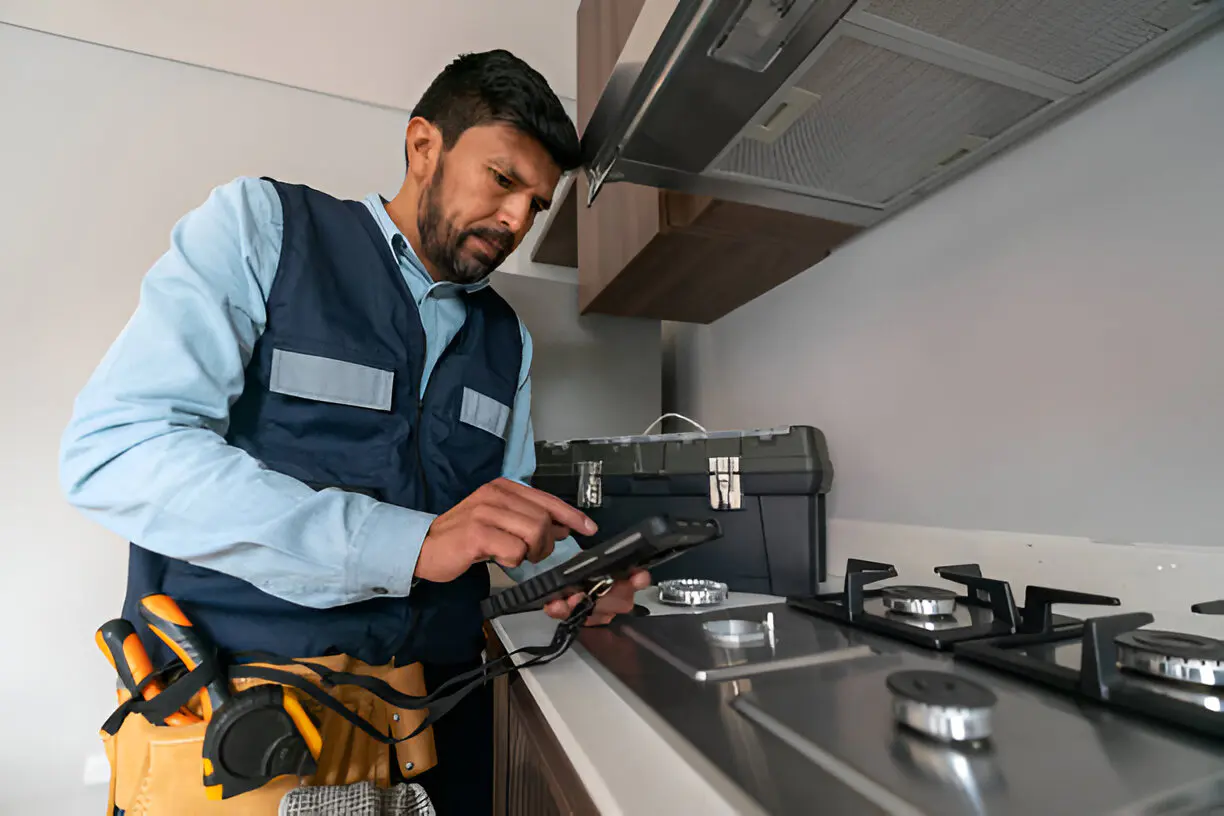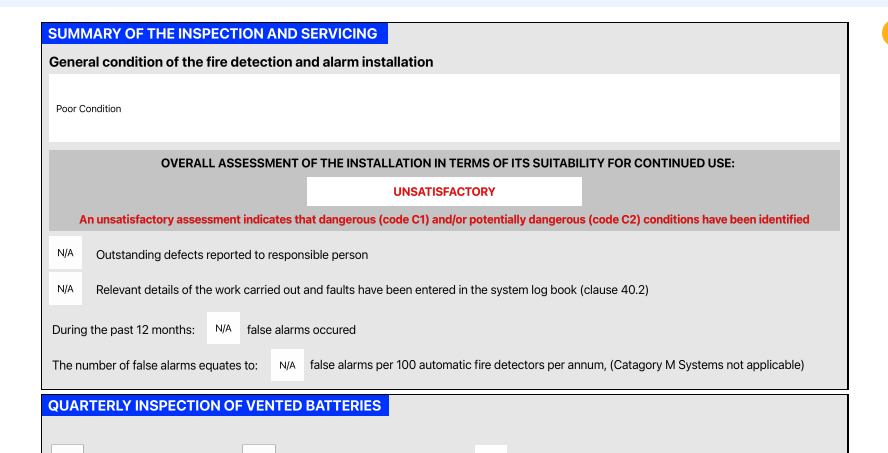As we approach 2024, private landlords must navigate the intricate landscape of gas safety regulations, a critical aspect of property management that ensures both compliance and tenant safety. The updated guidelines mandate annual inspections, strict adherence to maintenance records, and immediate provision of Gas Safety Certificates to new tenants. However, the nuances of selecting a qualified Gas Safe registered engineer and the specific timing for these checks create layers of responsibility that landlords must understand to avoid legal pitfalls. This discussion explores the implications of these requirements and the potential consequences of non-compliance, crucial for landlords aiming to safeguard their investments and tenant well-being. Let’s understand Essential Gas Safety Regulations for Private Landlords – 2024 Buy-to-Let Guide.
Key Takeaways
- Landlords must perform annual gas safety checks by a Gas Safe registered engineer and provide certificates to tenants.
- New 2024 regulations require immediate inspections at each tenant changeover to ensure appliance safety compliance.
- Maintain and update tenant emergency procedures, visibly posting them within the property and including them in welcome packets.
- Systematically track and manage Gas Safety Certificates, ensuring they are up-to-date and organized for each rental unit.
- Stay informed about regulatory changes and increase checks during high usage periods to prevent gas-related incidents.
The Importance of Gas Safety for Landlords in 2024
As we approach 2024, the imperative for landlords to adhere to stringent gas safety regulations cannot be overstated. Ensuring compliance is not only a legal obligation but also a fundamental aspect of protecting tenants and property investments.

Landlords must be well-versed in the latest regulatory frameworks and understand their responsibilities in maintaining gas appliances, flues, and pipelines to prevent hazardous incidents.
Heightened tenant awareness is crucial. Landlords should educate tenants about the risks associated with gas equipment and the importance of reporting potential issues promptly. Information packs and regular communication can serve as effective tools in fostering a culture of safety and vigilance. This proactive approach not only enhances safety but also reinforces compliance with legal standards.
Moreover, establishing clear and effective emergency procedures is essential. These should be meticulously outlined and easily accessible to tenants, ensuring they know the immediate steps to follow in the event of a gas leak or other related emergencies.
Landlords should regularly review and update these procedures to align with current best practices and regulatory advice, thereby minimizing risks and ensuring rapid response capabilities in critical situations.
Understanding Gas Safety Checks: What’s Involved?
Understanding the intricacies of gas safety checks is critical for every landlord. These preventive assessments ensure that all gas appliances, pipework, and flues in rental properties are not only functional but also meet rigorous safety standards.
The process involves a thorough inspection by a Gas Safe registered engineer, who examines the operational integrity and safe functioning of each gas appliance and its associated installations. This evaluation includes checking for adequate ventilation, confirming the correct operation of safety devices, and ensuring there is no carbon monoxide leakage or exposure risk.
The engineer will also assess the physical condition and effectiveness of seals and gaskets to prevent gas leaks, emphasizing the necessity of regular gas appliance maintenance.
Effective tenant communication is integral to coordinating these checks. Landlords must inform tenants of upcoming inspections, ensuring access to the property and minimizing disruptions. This engagement not only fosters a cooperative relationship but also underscores the importance of safety measures, encouraging tenants to report any gas-related issues promptly.
Ultimately, these safety evaluations are indispensable, not only for legal compliance but also for safeguarding the lives of tenants and maintaining the property’s value through diligent upkeeping.
Gas Safety Legal Obligations: A Landlord’s 2024 Checklist
Landlords must not only ensure the operational integrity of gas installations but also adhere strictly to legal requirements to guarantee tenant safety. In 2024, it is critical that landlords fully comply with updated gas safety regulations, which include maintaining accurate records, ensuring annual safety checks, and implementing robust emergency procedures.
First, communication with tenants about gas safety is mandatory. Landlords must provide new tenants with a copy of the Gas Safety Certificate upon moving in and annually thereafter. This ensures that tenants are aware of the measures in place to protect them and understand their responsibilities in maintaining these safety standards.
Additionally, landlords are required to establish and communicate clear emergency procedures to all tenants. These procedures should include immediate steps tenants must take in the event of a gas leak and contact information for emergency services and the landlord or property manager.
This information must be visibly posted within the property and included in the tenant’s welcome packet.
Who Can Conduct a Gas Safety Inspection? Choosing a Qualified Engineer
Selecting a qualified engineer to conduct a gas safety inspection is a critical step for landlords in ensuring compliance with legal and safety standards. The engineer chosen must meet stringent certification requirements, which are designed to affirm their capability in handling such critical assessments responsibly and effectively.

Firstly, the engineer must be listed on the Gas Safe Register, the official list of gas engineers who are legally allowed to work on gas appliances. This certification ensures that the individual has undergone rigorous testing and evaluation to meet national safety standards.
Beyond this fundamental requirement, landlords should verify the engineer’s credentials and areas of specialization, particularly if the property contains unusual or complex gas installations.
Additionally, it is prudent for landlords to review the historical performance and reputation of the engineer. Seeking testimonials or references can provide further assurance of the engineer’s proficiency and reliability.
Importantly, continuous professional development is a must in this field, so ensuring that the engineer participates in ongoing training to stay abreast of the latest technologies and regulations is crucial.
This meticulous approach in choosing a qualified engineer not only fulfills legal obligations but significantly enhances tenant safety, fortifying the landlord’s reputation as a diligent and responsible property owner.
How Frequently Should You Schedule Gas Safety Checks?
Scheduling regular gas safety checks is essential for maintaining compliance with safety regulations and ensuring the well-being of tenants. For private landlords, striking the right balance in check frequency not only aids in regulatory compliance but also boosts tenant communication and trust. Legislation typically mandates annual checks, but circumstances may warrant more frequent evaluations.
To ensure optimal safety and compliance, consider the following table, which outlines key considerations and recommended actions regarding gas safety check frequency:
| Consideration | Recommended Action |
|---|---|
| Legal Requirement | Perform at least annual checks as required by law. |
| Appliance Age and Condition | Schedule semi-annual checks for older or higher-risk appliances. |
| Usage Patterns | Increase check frequency during high usage periods. |
| Tenant Turnover | Conduct a check at each change of tenancy. |
| Reported Issues | Immediate inspection upon tenant reports of gas appliance issues. |
Gas Safety Certificates: Why They’re Important and How to Manage Them
Obtaining and managing gas safety certificates is a critical component of ensuring residential properties meet legal safety standards. These certificates serve as formal documentation, confirming that all gas appliances and systems within the property have been inspected by a qualified engineer and are safe for use. This process not only adheres to strict regulatory compliance but also dispels prevalent gas safety myths, such as the misconception that once installed, gas systems require minimal maintenance.
Effective certificate management involves systematically organizing and updating these documents annually, following comprehensive inspections. Landlords must ensure that a registered gas-safe engineer conducts these checks. The management of these certificates should be meticulous; tracking expiration dates is crucial to ensure continuous compliance and safety. Utilizing digital tools or dedicated property management software can enhance the accuracy and efficiency of this process.
Moreover, educating tenants about the importance of these certificates can further ensure safety and compliance. Clear communication about the roles and responsibilities regarding gas safety can prevent misunderstandings and potential hazards.
Ultimately, diligent management of gas safety certificates is indispensable in maintaining the integrity and safety of rental properties, protecting both the landlord’s investment and the tenants’ well-being.
Consequences of Non-Compliance: Penalties and Risks in 2024
While diligent management of gas safety certificates significantly enhances the safety and compliance of rental properties, failing to adhere to these regulations carries severe consequences. Non-compliance not only jeopardizes tenant safety but also exposes landlords to substantial financial repercussions.

In 2024, the regulatory framework governing gas safety in rental accommodations has been tightened, reflecting an increased emphasis on landlord accountability and tenant protection.
Landlords must understand the specific penalties and risks associated with non-compliance:
- Financial Penalties: Heavy fines scaling with the degree of negligence can cripple the financial stability of a landlord’s business.
- Legal Prosecution: Potential criminal charges leading to prosecution can result from severe breaches.
- Loss of License: Non-compliance can result in the revocation of property rental licenses, severely limiting business operations.
- Increased Insurance Premiums: Insurance companies may increase premiums or refuse coverage altogether due to heightened risk.
- Reputational Damage: Public records of non-compliance negatively impact a landlord’s reputation, deterring potential tenants and business partners.
Adhering to gas safety regulations is not only a legal obligation but a moral one, prioritizing the well-being of tenants and the integrity of the rental business.
Conclusion
In conclusion, adherence to gas safety regulations is imperative for private landlords in 2024. Compliance not only ensures tenant safety but also mitigates legal risks and financial penalties. Regular scheduling of inspections, conducted by Gas Safe registered engineers, and diligent management of Gas Safety Certificates are essential practices. Landlords must remain vigilant and informed about evolving regulations to uphold their responsibilities effectively, thereby enhancing the safety and security of their rental properties.









